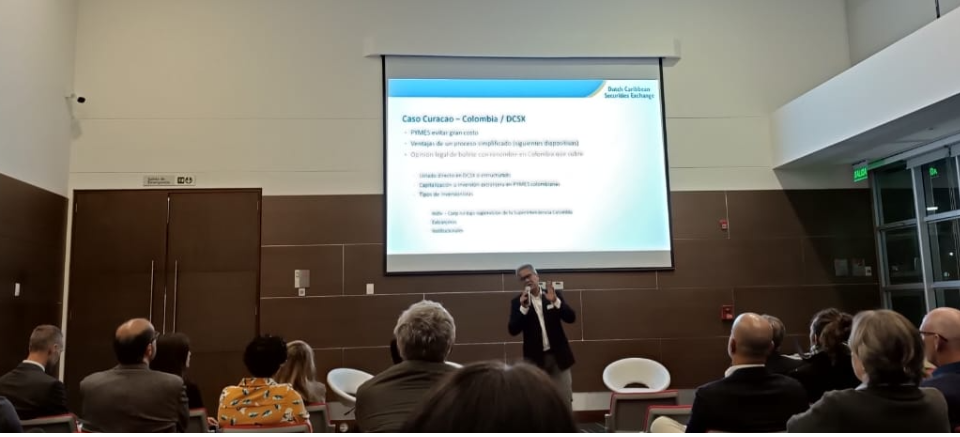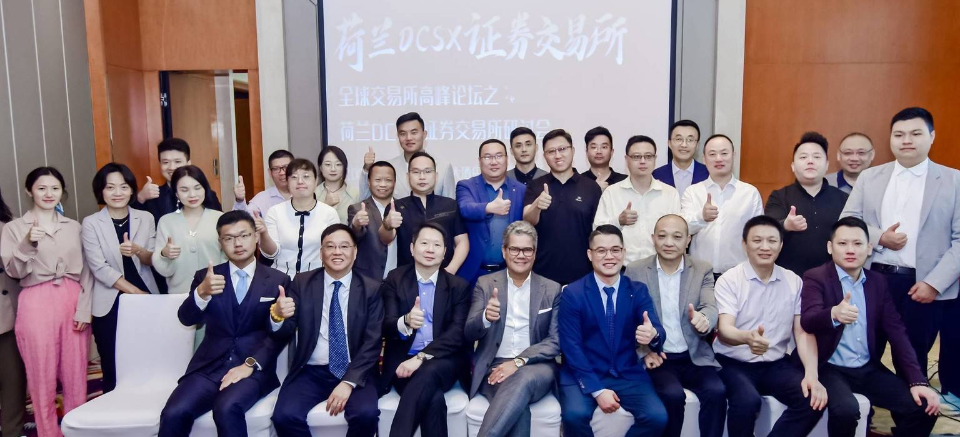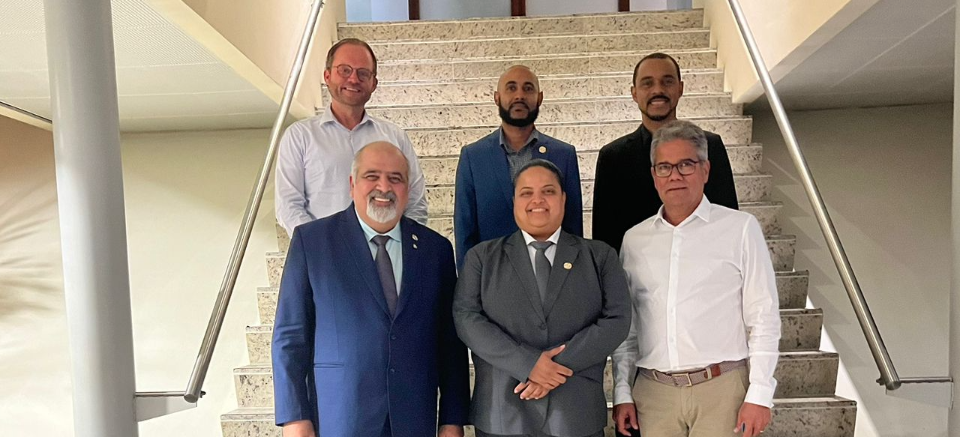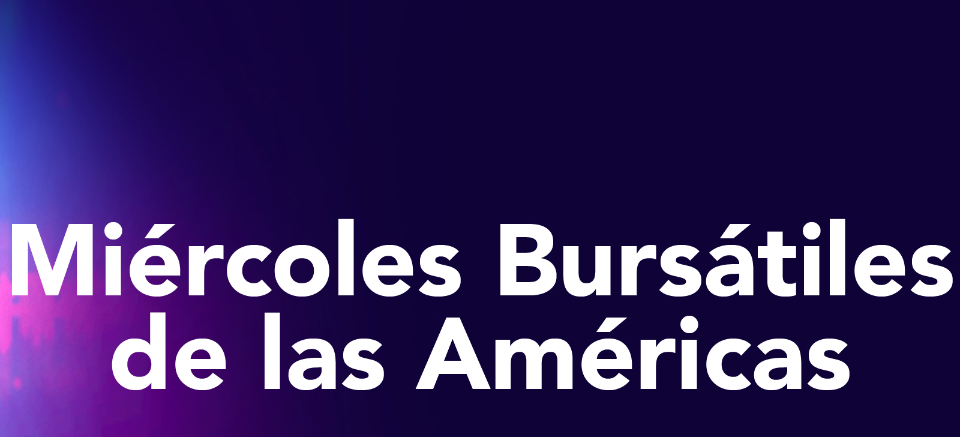- Contact us
- +599-9 461 4545
- info@dcsx.cw
Smart Nation Investment: Empowering People

ATECH Conference 2018
October 30, 2018
DCSX @ FIHAV 2018
November 14, 2018Smart Nation Investment: Empowering People
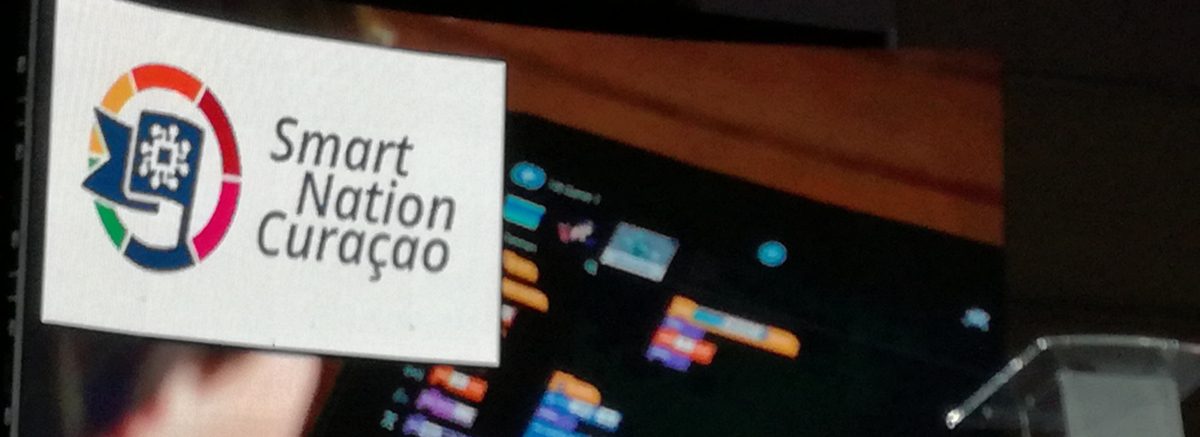
The third edition of CINEX Smart Investment summit, a two-day event, took place on November 1 and November 2, 2018, at the Sta. Barbara Beach & Resort. This year the main theme was “Smart Nation Investment: empowering people for the expectations of the next generation”. During these 2 days, local and international speakers shared their experience and views on the latest developments in the technology sector and its challenges.
The day starts with a light breakfast after registration and as has become a tradition at the CINEX Investment Summit the attendees enjoyed music presented by Gentz on the first day and Ephrem J on the second day, before the official opening of the Summit. The official part of the event started with welcome words from Ramon Koffijberg, Executive Director of CINEX.
Curaçao as a Smart Nation
The Minister of Economic Development Dr. I.S. (Steven) Martina also offered some welcoming words on the first day of the event and elaborated on the concept of Smart Nation. He acknowledged the need to create smart people through education, to work on smart living, to establish a smart government, smart mobility, smart environment, and smart economy. This can be built through entrepreneurship and innovation. He finalized his presentation with a call for action requiring every citizen to be part of the movement.
Smart Nation Development
The first international keynote speaker, Bram Reinders, is the Founder and Chairman of the Global Smart City and Community Coalition (GSC3). His role within GSC3 is to establish relevant Smart Grid and Smart City partnerships by aligning with worldwide technology providers, government, regulators, universities, consumer organizations, and the European Commission. He is also the founder of the European Network of Cyber Security ENCS, Chairman of several Expert Groups of the European Commission and Co-author of several European Commission reports.
He discussed the concept of Smart Nation Development and his smart nation vision for Curaçao. Holland is seriously working towards the Sustainable Development Goals set by the United Nations. One of them is the creation of Smart Cities. His organization (GSC3) is working along with the Dutch government to create smart cities in the Netherlands.
Each City in the Netherlands will contribute to the National Smart City strategy focusing on a specific smart area. It was proposed to expand the project within the kingdom. Each island will be an equivalent to a smart city focusing on specific areas. He also shared how his organization became successful in reaching out to the public and private sector: transparency, trust, and transformation. The World Bank signed an MIU based on the philosophy that the Kingdom is actively working towards Smart Nations. To measure the progress and success they are using a Data-Driven approach based on ISO 37120.
There are plans to showcase the progress at the “Floriade”, the World Expo Growing Green Cities, that will be held from April to September 2022. They are currently working on a pilot city that will be 100% off grid building energy producing suburbs. The next step would be upgrading existing buildings to create energy. 18 major companies in the Netherlands are participating in this project. In the case the government of Curaçao timely accepts to participate, these companies are willing to come to Curaçao as well. But is it up to Curaçao to take action as a nation.
He recommended organizing workshops, brainstorming sessions with companies and students, and considering what type of local companies could collaborate. Such exercises have been successful in the Netherlands starting at mid-level management with people that have the willingness to connect and collaborate. In addition, the Dutch government provides the freedom to develop new ideas. The work is carried out with a principles-based approach focusing on ethics, and accountability. The successfulness of a Smart Nation is not looking at it only from a technological perspective but also from an inclusive and social perspective. The Netherlands is strongly committed to achieving the established goals. The success of smart cities is the success of the kingdom.
Smart Government
The next speaker, Rob Meikle, Chief Information Officer for the city of Toronto, discussed Smart Government and how Toronto managed to improve the way of life of its citizens by using data and technology. First, they gather data and perform analytics to understand the symptoms and get to the root of the community’s problems. They understood that they could change human behavior with the use of data and technology. They understood early on that the new technology should be built to improve the quality of life and not as a distraction of daily life. Cybersecurity became a top priority by protecting city assets and safeguarding the public and private information. Especially for the elderly people who are at risk of having their identity stolen by being less tech-savvy than the rest of the population. Examples of successful projects include:
- The digitalized wastewater management using augmented reality, drones, and big data.
- Revitalizing Toronto’s waterfront to increase sustainable resilience and urban innovation which contributes to economic development and prosperity.
- The government of Toronto worked (and is still working) to increase digital literacy among children. They made an analysis of how many children are living beneath the limit with limited access to the internet. Children used to go to the library to have internet access but what happens when the library closes and they haven’t’ finished their homework? They are not able to complete their studies.
How did these projects become successful? There needs to be a clear vision that smart cities are created on a culture of inclusion: social, economic and digital. In order to know what the issues of the community are, the government went into the neighborhood and listen to the people, promoting civic engagement. As a result, they obtain data and gradually remove the fear of failure through more education and awareness. This facilitated the shift of jobs from traditional to innovative jobs. This strategy of handling innovation didn’t create unemployment. The people received an innovative education which in many cases was free of charge. At the end of the study, the participants receive certification that they are able to perform the new jobs. Through this process, Toronto’s government had partners and search for funding that helped establish and executing the innovation strategy.
The next speaker, Jannelieke Aalstein, deputy director/manager at Rotterdam Partners since 2015, discussed the concept of Smart City Branding. The key to make the smart city branding a success is knowing what is the DNA of the city, what are the brand values, establish what you want to sell. The next step is great a brand that remains consistent when other partners (brand allies) are telling your story. Also, attract people to your country that support your values and want to continue to build on those values. Stay away from people who want to change your values or the DNA of your city.
Smart Technology
Jan Kees de Jager is the CFO and Member of the Management Board KPN, Finance Minister February 2010- November 2012), was a member of the Dutch Innovation Platform and has past experience as entrepreneur building Spectra Vision. He shared his insight on Smart Technology. In order to be successful with digital transformation, silos have to be destroyed before the innovation process can start. The next step is becoming agile by working together in teams no larger than seven members from the production, research, and commercial departments. Recruiting new talent is important, as well as planning time to market the project. How is society affected? The platform becomes bigger; you are able to connect to the world. Civilians feel more empowered when they are able to decide what to do with their data. Privacy should be governed in the right way. On the concept of how to accelerate Smart Investment in Curaçao he mentioned the following:
- Knowledge and alliances
- Favorable Investment Climate
- Act and Execute
On making a favorable investment climate it is necessary to make it super simple and deregulate simple rules and regulations. If done well, this will decrease the costs of the government. For example, changing tax legislation. There are options, for example, to rely on only corporate taxes and sales taxes or any other taxes which are OECD compliant. He mentioned a specific example of the BES islands where there is no collection of corporate tax. This has made a positive impact on the investment climate for international climate for international investments. For the government reduces the costs on tax collection. Indirect taxes are an easier tax form to collect and they are collected through real estate, consumption, and labor. How? Eliminate complicated structures, simplify, standardize and automate, evaluate the 51% of ownership, start some sort of e-residency program and consider e-commerce opportunity.
On the concept of Curaçao as a smart city, we need to consider the inclusion of big data, robotics, and automation in services we offer. We need to understand our real customers’ needs and not what they are telling you they need. For example, when people said they needed faster horses. Someone understood their actual need for transportation and invented the car. In addition, he also mentioned that we should attract the right people that could connect with you and support you: add standards to immigration to get Smart people. He finalized with the recommendation to replace fear of the unknown with curiosity. And for those that argue that curiosity killed the cat, he said it’s not curiosity but stupidity that killed the cat.
Smart People
The next speaker, Kirk Laughlin is the managing director and founder of Nearshore Americas which is a widely respected media and research group which examine the emergence of Latin America as a global leader for outsourcing services and knowledge-based industries. He discussed the concept of Smart People. In this digital era, people remain the center and most important element. So it is no surprise that the Global Customer Services increased with offshore or nearshore offices. It is basically outsourcing of the customer service. Nearshore Americas is offering those services by working with people from diverse background. To be an employee at Nearshore Americas being bilingual is extremely valuable. Continuous education is important but the people of Curaçao have a great advantage, which should be considered one of their most important strengths that should be exposed more: being multilingual. An example of this was enacted for Kirk and the audience. He was amazed at our ability to switch from one language to another so fast and our ability to speak clear English without an accent. There is a great opportunity for locals to work at companies such as Nearshore Americas.
Smart Health
The last speaker of the first day of the summit was Eric de Grijs, owner of TeleConsult Europe which was founded in 2007 by Dutch radiologist. He shared his insights on Smart Health, particularly on radiology and teleradiology. Already there is the possibility to exchange images through innovation. The radiologist doesn’t need to stay in his/her country to do the work. Innovation will give the patient the ownership of the data and decide where to go with it. There are already watches where you can download same specifics of your health. In the near future, that watch will be your beacon to obtain information about your health. You no longer will need to go to the hospital for a simple check up! There will be a station within shopping centers and business centers where you would be able to can yourself and obtain an initial diagnosis.
In regards to Curaçao & Smart Health he mentioned the idea of considering Curaçao as a hub for telemedicine in the future. At the end of this presentation, it was announced that he will establish a company on the island that will have Swedish doctors working in a different time zone to cover, the nightly hours and provide their service to their Swedish Patients thanks to new technology.
The first day of the summit finalized with two discussion panels moderated by Mr. Franklin Sluis, CEO of Bureau Telecommunications & Post and a cocktail event in the evening.
On the second day of the summit, there were some interesting speakers as well. The Minister of Traffic, Transport and Urban Planning, Mrs. Zita Jesus-Leito shared her views on Curaçao becoming a smart nation. In order to achieve this goal according to her, we all need to work together. She mentioned the issue of mobility on our roads that have to improve. We believe this would be an opportunity for entrepreneurs to come up with solutions that are sustainable and environmentally friendly at the same time. There are already some ideas in the works internationally, why not create a solution locally as well?
Smart Transformation
The first two international keynote speakers were Professor Jan Rotmans and Peter Goedvolk founder and owner of COUNT. COUNT helps companies within the trade and logistics domain to modernize in a sustainable way, with the ultimate goal of optimizing supply chains. Professor Rotmans shared his views on the new economy focused on sustainability, what he called Economy 3.0. Economy 3.0 is based on digitalization. The Netherlands is already embracing the new economy by using blockchain technology for logistics. But how can Curaçao embrace the new economy? Create ecosystems consisting of schools and businesses working together. Businesses in the new economy will become agile organizations with the following characteristics:
- Simple processes;
- Understanding the client;
- Acting multi-disciplinary;
- Learning organization and;
- Focused on trust.
Businesses who are transforming to become part of the new economy should use a transition strategy focusing on new clients, new business models, and new orientation.
Peter shared his experience with the Port Company of Rotterdam that is transforming to become part of the new economy. The expectation is that as a result of this transformation, the company will eventually provide services through an app. Through this transformation, the data department became the most important department of the company. Curaçao can also join the new economy by working together with initiatives such as GreenTown Curaçao. The new economy consists of businesses that use technology to improve the way of living of individuals while also taking the environment into consideration. It also makes companies more accessible to customers. The internet started a revolution by making the sharing of knowledge easy. Digitalization will do the same for the sharing of services.
Digital Nation
Santiago Pinzon Galan, Vice President of Digital Transformation at ANDI Colombia, shared his views on Smart Digitalization and provided several examples of how Latin American cities are starting to embrace the new economy like the digitalization of museums in Brazil. He also talked about the importance of the creative and cultural industry in the new age of digitalization. He describes it as the orange economy, an economy where data is the new oil and artificial intelligence is the new electricity.
Smart Government
Marten Kaevats, the National Digital Advisor in the Government Office of Estonia shared how Estonia completely embraced the new economy having transformed all paperbased processes public and private to digital including the citizen identification process, voting process, taxes, and health records. The process started since 1991 and by 2007 the country became completely digitally based. The Citizen is the owner of his/her information and has control over it. The information is no longer centralized by the government or organizations. There are no waiting lines anymore because the citizen receives the requested information like tax reimbursements in a few minutes.
The key to the success of Estonia is having the digital and cyber security knowledge in house and continuously investing in education in this area as a high priority. Estonia also invested in hardware and software including high level encryption. Estonia also offers an E-Residency for Business Owners which consist of a digital signature and facilitates doing business in Estonia and Europe. However, it does not include citizenship as many believe. It is a facilitating tool that had positive results for the country’s economic growth.
The next keynote speaker, Leigh Ann Buchanan, founding Executive Director of Venture Café Miami shared her views on Smart Communities. Followed by James Ellsmoor, Energy, Climate & SIDS Consultant and Director of Solar Head of State, who shared his views on Smart Energy. Ariel Moreno, Founder and Managing Director at E-TakeOff S.A.S, discussed Smart Health.
The last day of the summit finalized with two panel discussions moderated by Ryan Shaw, CEO of Blockade Technologies, and a very energetic farewell.
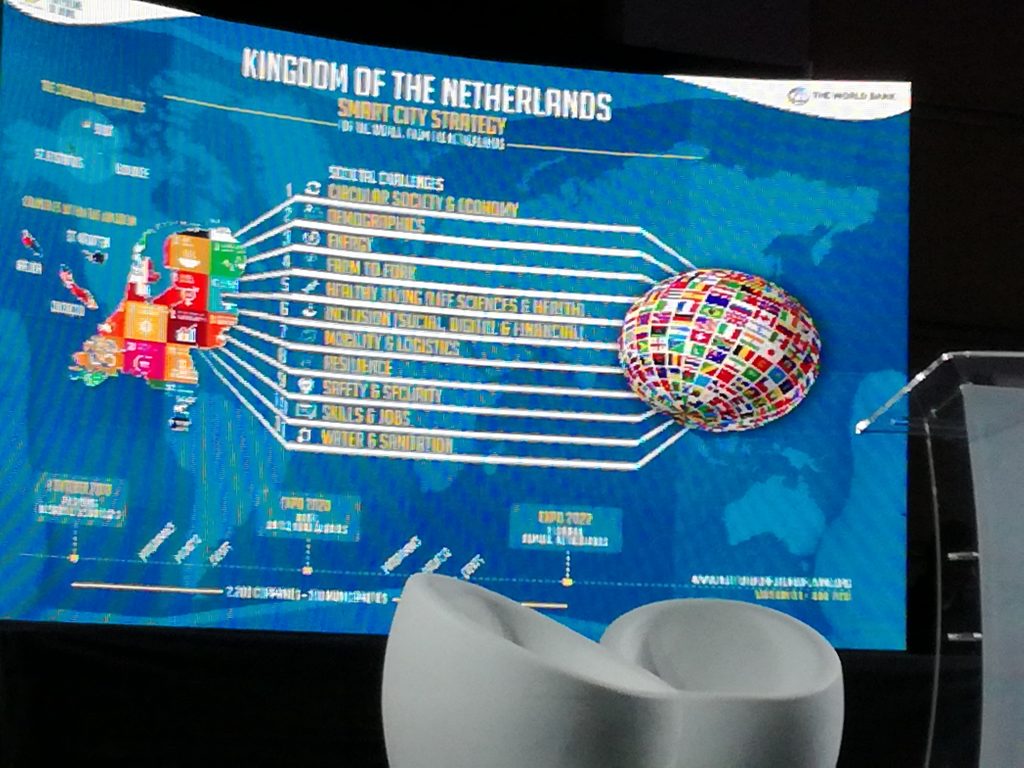
Overall the summit was an eye opening event. All speakers provided concrete examples of initial steps towards a Smart Nation. Now it’s up to us to get involved and work together towards new opportunities. In many examples, it was the private sector who took the initiative to support entrepreneurs’ ideas which were later presented to the government. On Curaçao, we have many platforms that in some way or the other support entrepreneurship. All those platforms should come together as one eco system and start working on establishing accessible Incubators and Labs where entrepreneurs receive the necessary guidance to work on their startups and build-up their ideas.
For more information regarding the summit contact info@curinvest.com

